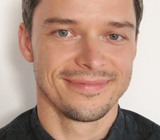 Having made my final submission for the NHS Leadership Academy, and after being told I’ve passed the course by my learning set, the programme should be in the bag. That is unless there are any last minute surprises from the validating board coming up.
Having made my final submission for the NHS Leadership Academy, and after being told I’ve passed the course by my learning set, the programme should be in the bag. That is unless there are any last minute surprises from the validating board coming up.
I’ve always enjoyed the space between handing in coursework and getting my results. Given that I don’t yet officially know my fate, I thought now would be the right time to give my reflections on the programme as a whole. Here are some things to think about (Dos and Don’ts) if you’re considering applying yourself:
• Do expect to be challenged. A lot of the learning will be uncomfortable. “Getting comfortable with being uncomfortable” was something our set facilitator encouraged us to do early on. If you’re not uncomfortable in some way, then you’re not learning.
• Don’t expect it to be easy. I’ve done some leadership development before, but this programme was harder than that. You need to be prepared to be in it for the duration of the programme—and be willing to graft.
• Do engage with your new network. You’ll be introduced to people from all corners of the NHS and beyond. Want to know more about clinical commissioning groups, commissioning support units, or area teams . . . ? Ask the person next to you. They work there.
• Don’t do things by halves. There is a wealth of material on the programme. The more you make use of it, the more you learn. Online material, residential courses, learning sets; there’s enough variety to keep you stimulated.
• Do prepare to be frustrated. For the Bevan programme at least, the course throws up dilemmas where the way forward isn’t clear. You may find yourself in a position where you have to wrestle with your morals and your values are affronted.
• Don’t panic—these can be the most valuable opportunities for your learning. Remember the NHS is an imperfect world and you need to learn to handle difficult situations. Flex you’re burgeoning leadership skills and reflect on what happens.
• Do make use of feedback. You can’t get too much during the programme. Keep asking for it. People will be happy to share it. Finding out about how different people perceive you can help you think about how you communicate and present yourself. Valuable intelligence for any leader.
• Don’t give up. There will be times that you ask yourself why you have taken this on. See it as a lesson in perseverance. Dig deep.
So was it worth it? Would I do it again? Yes and yes, absolutely. I learned a lot, mostly in ways I did not expect. And I have learnt as much, if not more, from people who did the course with me, as well as others who have helped me reflect.
In the spirit of reflection and contributing to the learning of others, we’re holding another reflective chat on Twitter about “Helping the leadership development of others.” We’ll be asking, among other things, whether helping others helps ourselves. If you’re interested, you’re very welcome to get involved and join the conversation. The hashtag is #ReOTD and we will be chatting on Wednesday 19 November 7-8 pm GMT.
Thanks for reading my blogs on my time at the NHS Leadership Academy, and thanks to everyone who has given me feedback and supported my learning.
Billy Boland is a consultant psychiatrist and associate medical director for quality and safety at Hertfordshire Partnership University NHS Foundation Trust. You can follow him on Twitter @originalbboland
Competing interests: I declare that I have read and understood BMJ policy on declaration of interests and I have no relevant interests to declare.
